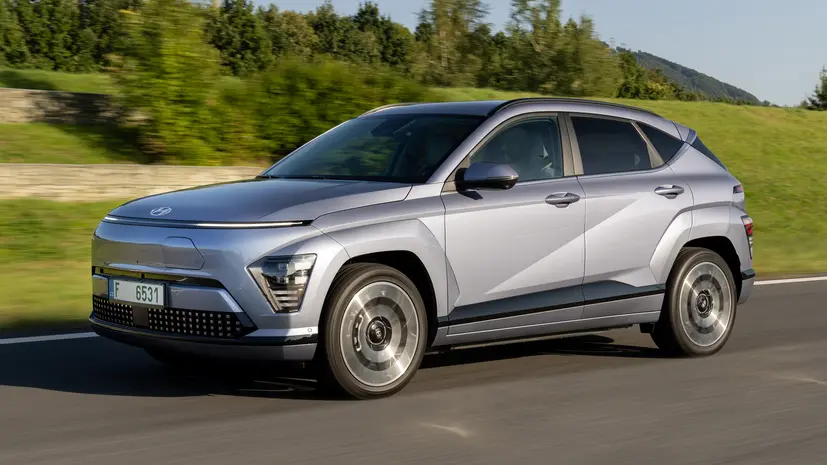Introduction: The Rise of Electric Cars
In recent years, electric cars have surged in popularity as people become more conscious of their environmental impact and seek sustainable alternatives to traditional gasoline-powered vehicles. The importance of electric cars for a sustainable future cannot be overstated. They represent a significant shift towards greener, more efficient transportation that aligns with global efforts to combat climate change and reduce our carbon footprint.

Environmental Benefits of Electric Cars
Electric cars offer substantial environmental benefits, making them a cornerstone in the fight for a sustainable future. One of the most notable advantages is their reduction in greenhouse gas emissions. Unlike conventional vehicles that burn fossil fuels, electric cars run on electricity, which can be generated from renewable sources such as wind, solar, and hydro power. This transition helps decrease the overall carbon dioxide output, mitigating the effects of climate change.
Additionally, electric cars contribute to better air quality. They produce zero tailpipe emissions, reducing pollutants like nitrogen oxides and particulate matter that are harmful to human health. By choosing electric vehicles, we can significantly decrease air pollution, particularly in urban areas, leading to a healthier environment for everyone
Economic Advantages
Beyond their environmental impact, electric cars offer compelling economic benefits. One of the primary advantages is the lower cost of ownership. Electricity is generally cheaper than gasoline, which means that running an electric car is more cost-effective. Furthermore, electric vehicles require less maintenance because they have fewer moving parts compared to internal combustion engine vehicles. This translates to lower long-term maintenance costs and fewer trips to the mechanic.
Governments around the world are also encouraging the adoption of electric vehicles through incentives and rebates. These financial incentives can reduce the initial purchase price, making electric cars more accessible to a broader range of consumers. Over time, as technology advances and economies of scale are realized, the cost of electric cars is expected to continue to decrease
Technological Advancements in Electric Vehicles
Technological advancements are at the heart of the electric vehicle revolution. Significant progress has been made in battery technology, which is crucial for improving the range and efficiency of electric cars. Modern lithium-ion batteries are more durable, charge faster, and have greater energy density, allowing electric cars to travel longer distances on a single charge.
The development of charging infrastructure is another critical area of progress. The expansion of fast-charging networks makes it more convenient for electric car owners to charge their vehicles quickly and efficiently, reducing range anxiety. Additionally, the integration of electric cars with renewable energy sources, such as solar panels, allows for cleaner and more sustainable energy usage.
Impact on Public Health
Electric cars have a profound impact on public health by reducing harmful emissions that contribute to respiratory and cardiovascular diseases. Traditional gasoline and diesel vehicles emit pollutants that can lead to serious health issues, particularly in densely populated urban areas. By transitioning to electric cars, we can significantly reduce these emissions, leading to cleaner air and healthier communities.
The reduction in noise pollution is another health benefit. Electric cars are much quieter than their internal combustion counterparts, contributing to a decrease in noise-related stress and health problems. This quieter environment is especially beneficial in cities, where noise pollution is a constant concern.
Electric Cars and Energy Independence
The adoption of electric cars plays a crucial role in achieving energy independence. By reducing our reliance on imported fossil fuels, electric vehicles help enhance national security and economic stability. Countries that invest in renewable energy sources can generate their own electricity, decreasing dependency on volatile global oil markets.
This shift not only supports a more resilient energy infrastructure but also stimulates local economies. Investing in renewable energy projects and electric vehicle infrastructure creates jobs and fosters innovation, driving economic growth while promoting sustainability
Challenges and Solutions
Despite the numerous benefits, there are challenges to the widespread adoption of electric cars. One of the primary obstacles is the high initial cost of electric vehicles compared to traditional cars. However, this gap is narrowing as technology advances and production scales up. Government incentives and rebates also help offset the initial costs, making electric cars more affordable.Expanding the charging network is another critical challenge. To address this, governments and private companies are investing heavily in building and expanding charging infrastructure. Innovations such as fast-charging stations and wireless charging are also emerging, making it easier and more convenient for electric car owners to charge their vehicles.Overcoming range anxiety, or the fear of running out of battery power, is another concern. Advances in battery technology and the development of more efficient charging solutions are helping to alleviate these fears, making electric cars a more viable option for long-distance travel.
Case Studies: Success Stories from Around the World
Several countries are leading the way in electric vehicle adoption, demonstrating the importance of electric cars for a sustainable future. Norway, for example, has implemented comprehensive policies and incentives that have resulted in electric cars accounting for over half of all new car sales. This success is driven by a combination of tax exemptions, subsidies, and extensive charging infrastructure.
